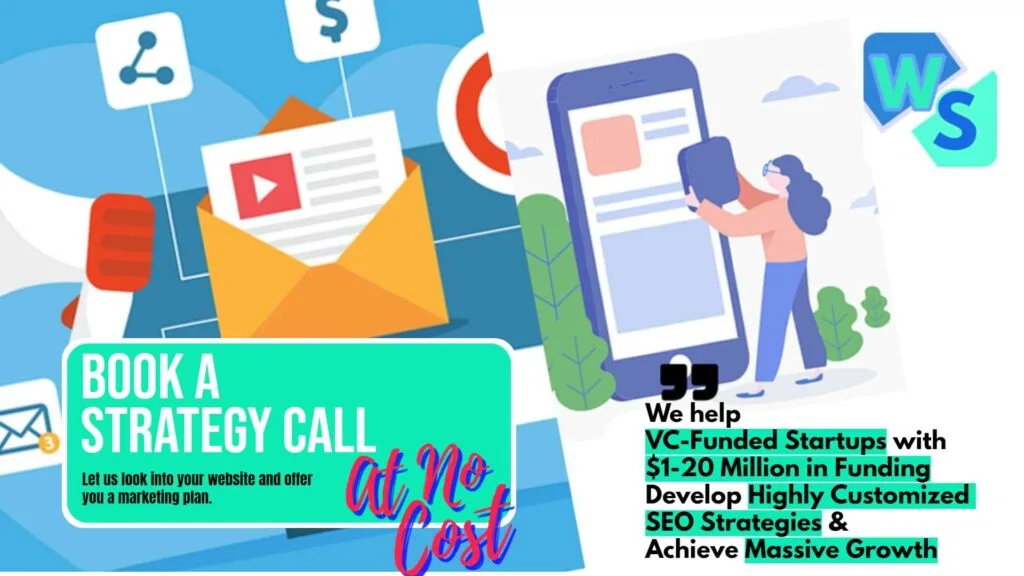As we step into 2024, the digital marketing world continues to evolve, and email marketing remains a cornerstone of effective communication strategies. In this detailed guide, we’ll unravel the features, strengths, and nuances of both Constant Contact and Campaigner, helping you decide which tool could be your go-to choice for email marketing in 2024. Let’s not waste any more words and get straight into the heart of the matter!
User Interface and Experience – Ease of Use Matters
In today’s fast-paced digital world, the user interface (UI) and overall user experience (UX) of an email marketing platform can make a significant difference in your day-to-day operations. Let’s start by comparing how Constant Contact and Campaigner fare in these crucial aspects.
Constant Contact – Simplicity Meets Efficiency
Constant Contact has been a long-time favorite for its user-friendly interface, which is designed to cater to users of all skill levels. The platform provides a straightforward, intuitive dashboard that makes it easy to navigate through various features, from setting up campaigns to analyzing results.
The platform’s email editor is particularly noteworthy for its simplicity and efficiency. With a drag-and-drop interface, it enables users, regardless of their technical expertise, to create attractive and effective emails. This simplicity is a huge asset for those who want to quickly get their campaigns up and running without a steep learning curve.
However, users looking for advanced customization might find Constant Contact’s user interface a bit too simplistic. While it’s great for basic to intermediate needs, power users or those seeking highly intricate customizations might need a tool with more flexibility.
Campaigner – Advanced Features with a Learning Curve
Campaigner, on the other hand, offers a more feature-rich environment, which can be a boon to users who crave advanced functionalities. The platform provides a wide array of tools and options for creating, managing, and optimizing email campaigns, making it a strong choice for seasoned marketers.
However, with these advanced features comes a bit of a learning curve. New users or those used to more basic platforms might find Campaigner’s interface somewhat challenging initially. The platform is packed with powerful tools, but leveraging these effectively may require a bit more time and exploration.
Email Automation and Personalization – Crafting Targeted Campaigns
In the realm of email marketing, automation and personalization are key to creating effective and engaging campaigns. Let’s delve into how Constant Contact and Campaigner stack up in these crucial features.
Constant Contact – User-Friendly Automation and Personalization
Constant Contact is known for its straightforward approach to email automation. The platform makes it easy to set up automated email sequences, such as welcome series, birthday emails, and other trigger-based messages. This level of automation is ideal for businesses that want to maintain regular, personalized communication with their audience without needing constant manual input.
In terms of personalization, Constant Contact allows you to tailor your messages based on basic subscriber data like name, location, and past interactions. While this may not be the most advanced level of personalization, it’s sufficient for many standard email marketing needs and is incredibly user-friendly, making it accessible to all types of users.
However, if you’re seeking more intricate, multi-level automation workflows or highly sophisticated personalization, Constant Contact’s features might feel somewhat limited. It’s perfect for basic to moderate needs but may not satisfy those seeking more complex automation capabilities.
Campaigner – Sophisticated Automation for Dynamic Campaigns
Campaigner steps in with more advanced automation and personalization features. It caters to businesses and marketers who require a deeper level of control and customization in their email marketing campaigns. The platform offers robust automation features that allow for the creation of complex, behavior-based email sequences.
With Campaigner, you can segment your audience based on detailed criteria and tailor your emails to suit specific subscriber behaviors and preferences. This level of detailed automation and personalization is invaluable for crafting targeted and effective email marketing strategies.
However, the advanced nature of Campaigner’s automation and personalization features means that they come with a steeper learning curve. For those who are new to email marketing or prefer a simpler approach, mastering these features in Campaigner might initially be challenging.

Related: Check out our free SEO suite

Integration Capabilities – Enhancing Your Marketing Ecosystem
In the digital marketing world, the ability of your email marketing tool to integrate seamlessly with other business applications can transform how you connect with your audience. Let’s take a closer look at the integration capabilities of Constant Contact and Campaigner to understand how they can enhance your overall marketing ecosystem.
Constant Contact has established itself as a highly versatile platform in terms of integration capabilities. Recognizing the diverse needs of businesses today, it supports a wide array of integrations with various CRM systems, e-commerce platforms, social media networks, and other essential marketing tools. This extensive range of integrations allows businesses to create a more cohesive and streamlined marketing strategy, ensuring that different tools and platforms work together harmoniously.
The ease of setting up these integrations in Constant Contact is one of its key advantages. Designed to be user-friendly, these integrations can be implemented without needing extensive technical knowledge, making them accessible for businesses of all sizes. This simplicity is particularly beneficial for small to medium-sized businesses that may not have dedicated technical teams to handle complex integrations.
However, despite its wide range of integrations, Constant Contact might not cover some of the more specialized or advanced integration needs required by certain businesses. While it excels in providing integrations for commonly used tools and platforms, businesses with unique or niche requirements may need to look for additional solutions.
Campaigner, on the other hand, offers a focused set of integrations, tailored to complement its strong email marketing features. While it may not provide the breadth of integrations available in Constant Contact, Campaigner ensures that its integrations are deeply integrated and highly functional. The platform focuses on integrations that enhance its core capabilities, particularly around e-commerce and advanced marketing automation.
For businesses that prioritize deep integration with specific tools, especially in the realm of e-commerce and marketing automation, Campaigner’s targeted approach provides the necessary functionality. These integrations are designed to maximize the effectiveness of email marketing campaigns, aligning closely with the platform’s strengths.
However, similar to Constant Contact, if your business relies on a wide range of diverse tools that extend beyond Campaigner’s focused integrations, you may find the options somewhat limiting. Campaigner is well-suited for businesses with specific integration needs but may not offer the extensive variety of integrations found in more generalized email marketing platforms.
Email Deliverability – Ensuring Your Message is Heard
In the complex world of email marketing, deliverability is a vital factor that determines the success of your campaigns. It’s about ensuring that your emails not only leave your outbox but also land in the intended inboxes and not in spam folders. Let’s delve deeper into the deliverability aspects of Constant Contact and Campaigner.
Constant Contact has established itself as a reliable platform in terms of email deliverability. This reputation is built on a foundation of robust technology and adherence to email sending best practices. One of the key strengths of Constant Contact is its ability to stay in tune with evolving email regulations and ISP requirements, ensuring that its users’ emails have the best chance of reaching their destination.
Beyond the technical aspects, Constant Contact also places significant emphasis on empowering its users to enhance their own deliverability rates. The platform provides tools that aid in creating engaging content, which is less likely to be flagged by spam filters. Additionally, features like effective list management, including bounce and unsubscribe handling, play a crucial role in maintaining a healthy sender reputation. Constant Contact recognizes that successful deliverability is a blend of technology, user practices, and content quality.
Campaigner, on the other side, approaches email deliverability with a mix of advanced features and insightful analytics. The platform is designed for users who are not just focused on sending emails but are also keen on understanding the nuances of deliverability. Campaigner’s tools are tailored to provide insights into various factors that influence deliverability, including sender reputation and email content.
One of the standout aspects of Campaigner is its detailed reporting on deliverability metrics. This level of detail allows users to closely monitor and adjust their strategies for optimal email delivery. Moreover, Campaigner’s focus on managing sender reputation, an often-overlooked aspect of deliverability, gives users an edge in ensuring their emails are received favorably by ISPs.
Pricing and Affordability – Evaluating Cost-Effectiveness
When selecting an email marketing tool, pricing is a crucial factor. It’s not just about the cost but also about what you get for your money. Let’s compare Constant Contact and Campaigner in terms of their pricing structures and the value they offer.
Constant Contact
- Email Plan: Starting at $20/month based on the number of contacts. Includes email marketing, customizable templates, and reporting.
- Email Plus Plan: Starting at $45/month based on contacts, including additional features like automated email series, online donations, and surveys & polls.
Campaigner
- Starter Plan: Begins around $59 per month for up to 5,000 contacts, including basic email marketing features and 24/7 support.
- Essential Plan: Priced around $179 per month for up to 25,000 contacts, adding features like advanced segmentation and A/B testing.
- Advanced Plan: Starting from around $649 per month for up to 50,000 contacts, offering advanced automation, reporting, and integrations.
- eCommerce Plan: Designed specifically for eCommerce businesses with custom pricing, including features like purchase behavior tracking and predictive analytics.
Constant Contact – Flexible Pricing Plans
Constant Contact offers a tiered pricing structure, which varies based on the features you need and the size of your email list. This approach allows businesses of different sizes to choose a plan that fits their budget and needs. The platform offers a range of plans, from basic ones suitable for small businesses or startups to more advanced plans designed for larger organizations with more complex needs.
One of the appealing aspects of Constant Contact’s pricing is its transparency. Prices for different plans are clearly outlined, making it easy for businesses to understand what they’re paying for. Additionally, Constant Contact often includes extra features like social media tools and website builders in their plans, adding more value.
However, as your email list grows, the cost with Constant Contact can increase significantly. For businesses experiencing rapid list growth, this pricing model can lead to higher costs over time, which is an important consideration when choosing an email marketing platform.
Campaigner – Customized Pricing for Specific Needs
Campaigner takes a slightly different approach to pricing. It offers customized pricing plans based on the specific needs and size of your business. This flexibility can be particularly advantageous for businesses with unique requirements or those who prefer a more tailored solution.
Campaigner’s pricing model is designed to be scalable, growing with your business. This means you pay for the features and capacity you need, which can be cost-effective for businesses at different stages of growth. The platform also offers advanced features like segmentation, automation, and detailed analytics, which can provide significant value, especially for more sophisticated email marketing strategies.
The tailored nature of Campaigner’s pricing, while offering flexibility, may require more effort in terms of initial setup and ongoing management. Determining the right plan can involve a detailed assessment of your needs, which might be more complex than opting for a predefined plan.

To automate a nurture campaign in Constant Contact I use and would recommend using the following process:
First, navigate to the campaigns tab in your dashboard and select the “create email” option.
From there, select “email automation” and name your automation to whatever you’d like.
Next, decide on a trigger to start this automation. Personal favorites of mine would be, tagging leads who didn’t convert. You can tag them as “maybe” which can also be automated at the end of your product/service outreach campaigns. Allowing you to build a list of “maybes” inside Constant Contact.
From here we can select the trigger as – has tag “maybe”.
Now, build out your emails, if you are going to send more than one then it may be worth it to build an email template.
I would recommend doubling the time in between contact each email you send. For example, you should send an email on day 1, 3, 6, 12, 24, 48, 96, 192, etc for the length of your campaign. This prevents recipients becoming overwhelmed.
You will also need to decide when the first email is sent, again, I would recommend setting hour parameters, for example between the hours of 10am – 4pm and instantly. Meaning contacts who get tagged as “maybe” will be sent your email instantly if between these hours or as soon as they are within the decided hours.
After this, you’re automated campaign is good to go. Hit run and make sure to use Constant Contacts analytical features as insights into campaign performance and areas to improve.
Cameron Harvey, Digital Marketing Executive at The Munro Agency
Conclusion
Constant Contact shines with its user-friendly interface, making it a superb choice for beginners or businesses seeking simplicity in their email marketing efforts. Its flexible pricing plans, coupled with a wide range of templates and integrations, make it a versatile tool for various marketing strategies. The platform’s focus on ease of use and transparency in pricing is particularly appealing for small to medium-sized businesses.
Campaigner, on the other hand, stands out for its customized pricing and advanced features. It caters to businesses looking for a more tailored email marketing solution, offering scalability and flexibility. With advanced automation, detailed analytics, and focused integrations, Campaigner is well-suited for marketers who need sophisticated, data-driven tools to enhance their email campaigns.
Both platforms are capable of supporting your email marketing campaigns effectively, but the best choice will align with your business’s unique requirements and the nature of your email marketing campaigns. Whether you choose Constant Contact or Campaigner, the success of your email marketing efforts will also depend on your content quality, audience understanding, and engagement strategies.
Read Next:
- GetResponse vs Automizy: The Best Email Marketing Tool for 2024
- Crafting a Mobile App Development Agreement: An International Perspective
- Data Processing Agreement: An International Perspective
- Original Equipment Manufacturing Agreements: All You Need to Know
- SaaS Agreements Explained: Tips for Successful Software as a Service Contracts






















Comments are closed.